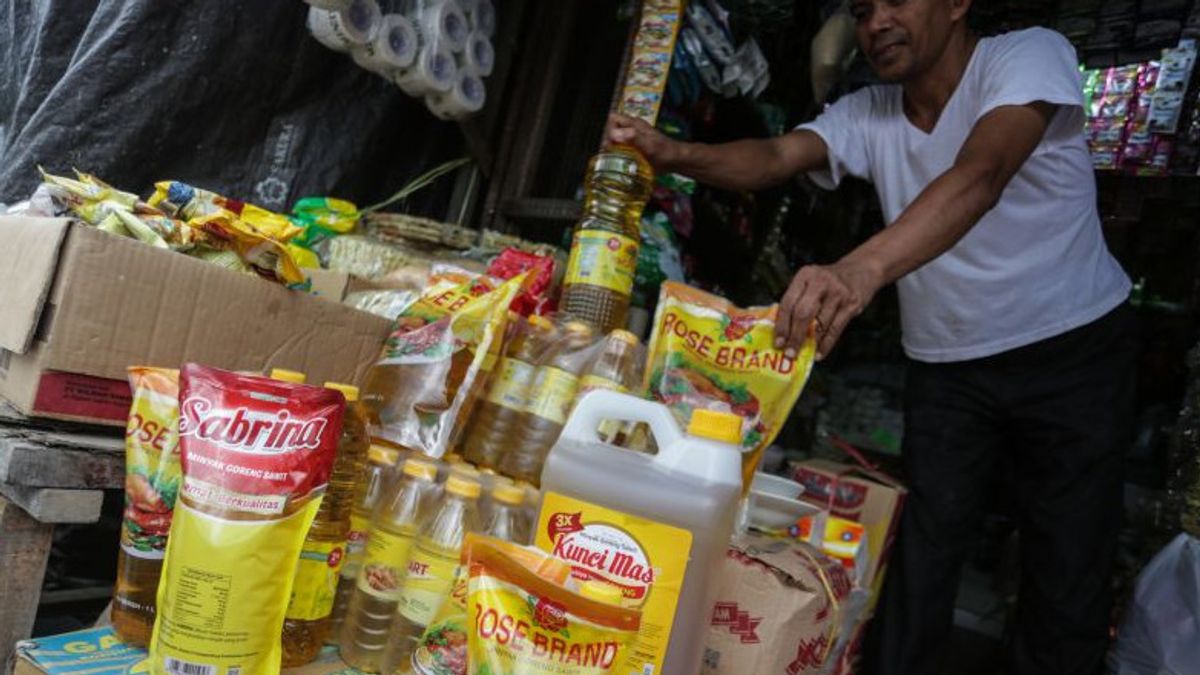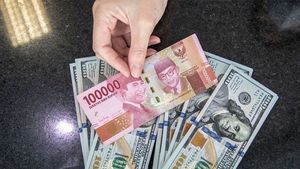JAKARTA - The Association of Indonesian Market Traders (APPSI) believes that the government is more in favor of modern retailers than traditional markets regarding the distribution of cheap cooking oil. As a result, market traders lose buyers.
APPSI Central Executive Board Chairman Sudaryono said the government's distribution of cheap cooking oil was uneven and fair. The injustice stems from the existence of a policy on cooking oil which is only to be sold in modern retail, while in the people's market the policy is not clear.
"The government has prioritized and prioritized the distribution of subsidized cooking oil in modern retail, which is clearly unfair to traders in traditional or traditional markets, because many people's market customers end up shopping at modern retail," he said, in a written statement received by VOI, Thursday, 10 March.
"This certainly benefits modern retailers and harms people's market traders," he continued.
Then, said Sudaryono, the government set a policy of the highest retail price (HET) for cooking oil to overcome the problem of commodity scarcity. Meanwhile, when the policy was enacted, the market traders' cooking oil stocks were still large and could not be sold.
The Ministry of Trade has set the highest retail price (HET) for cooking oil, namely the price of bulk cooking oil at Rp. 11,500 per liter, the price of simple packaged cooking oil at Rp. 13,500 per liter, and the price of premium packaged cooking oil at Rp. 14,000 per liter.
"Because the previous purchases cost Rp. 17,000 to Rp. 19,000 per liter, and the selling price is still Rp. 19,000 to Rp. 21,000 per liter," he said.
Ask to be involvedTherefore, Sudaryono asked APPSI to be involved in the government's populist programs in the distribution of cooking oil and other important basic needs.
According to him, the existence of cheap cooking oil commodities that are sold in traditional markets will have an impact on increasing money circulation in the lower levels of society as a result of increased trade transactions in people's or traditional markets.
"Traders in people's or traditional markets also want to participate in maintaining price stability by being given access to shopping for cooking oil to be sold in accordance with the government's selling price provisions," he said.
Therefore, Sudaryono said APPSI hopes that Jokowi will be more concerned about the fate of the small people who are currently struggling in very difficult situations and conditions. Especially the people's market players or traditional markets.
"APPSI requests the President to issue instructions on a fair and equitable distribution proportionally between modern retail and people's markets, so as to create a conducive market atmosphere," he said.
The English, Chinese, Japanese, Arabic, and French versions are automatically generated by the AI. So there may still be inaccuracies in translating, please always see Indonesian as our main language. (system supported by DigitalSiber.id)













